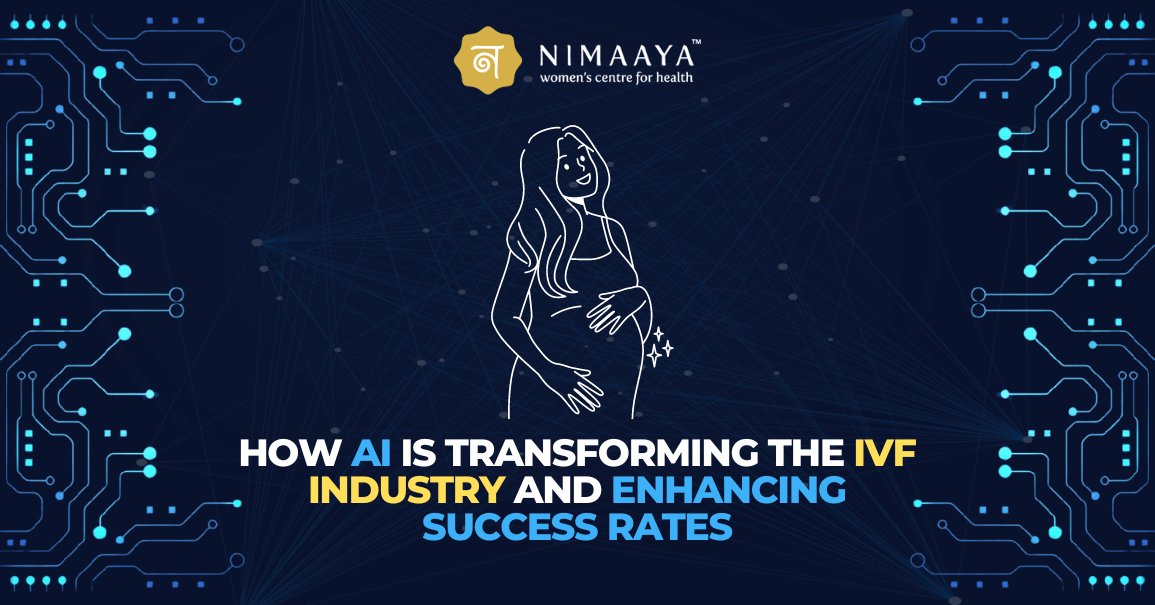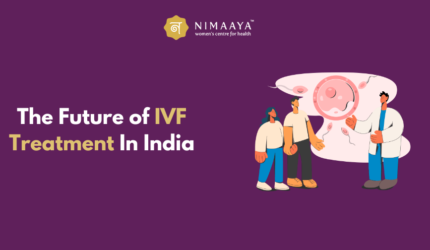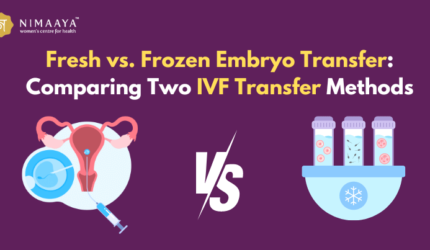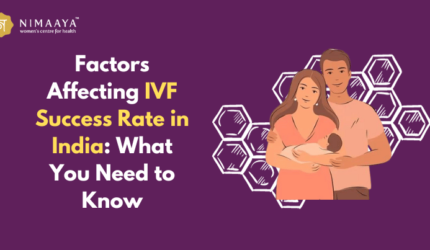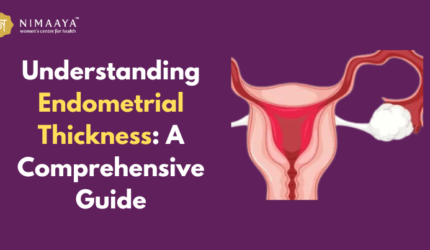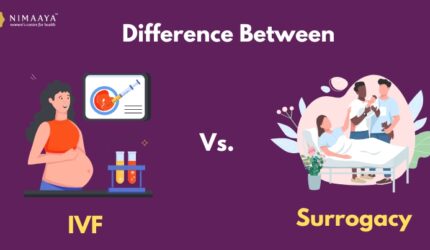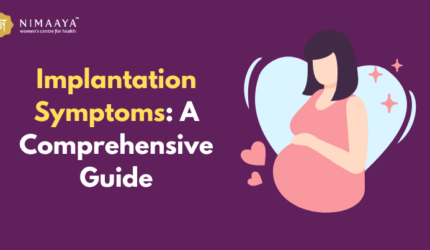Artificial Intelligence (AI) is a transformative force that has touched almost every aspect of our lives. From self-driving cars to virtual assistants, AI’s potential seems boundless. AI is making a significant impact in the field of In Vitro Fertilization (IVF). IVF is a medical procedure that assists couples struggling with infertility to conceive a child. AI in IVF clinics is revolutionizing fertility treatments, promising improved success rates and a more personalized approach for aspiring parents.
The Intersection of AI and IVF: A New Era of Fertility Treatments
The intersection of AI and IVF represents a new era of fertility treatments, offering hope to millions of couples facing infertility challenges. AI’s ability to analyze vast amounts of patient data is a game-changer for IVF clinics. AI algorithms can identify patterns and generate valuable insights by processing information from numerous sources, including medical records, genetic profiles, and lifestyle factors. These insights help clinicians develop personalized treatment plans tailored to individual patient needs.
This shift to personalized treatments improves the chances of successful pregnancies and reduces the emotional and financial burden on couples. With AI’s assistance, IVF clinics can offer more targeted and effective treatments, optimizing the probability of a successful embryo transfer and ultimately leading to higher IVF success rates.
Enhancing IVF Success with Artificial Intelligence
AI’s impact on IVF success rates must be considered. AI-driven predictive models can analyze historical patient data to identify factors contributing to successful outcomes. Factors such as the patient’s age, hormone levels, and the number of previous IVF cycles play a critical role in the procedure’s success. By considering these variables and analyzing their relationships, AI algorithms provide clinicians with valuable insights that guide the development of personalized treatment plans.
The advantage of this personalized approach is evident in the increased success rates of embryo transfers. With AI’s assistance, clinicians can now make more informed decisions on the timing and selection of embryos for transfer, leading to improved IVF success rates and more hopeful outcomes for couples on their fertility journey.
AI-Driven Embryo Selection in IVF: Precision and Accuracy
Embryo selection is a crucial step in the IVF process. Clinicians carefully evaluate and choose the healthiest embryos for implantation to maximize the chances of a successful pregnancy. Traditionally, embryo selection has been time-consuming and subjective, but AI technology is changing that.
AI-driven embryo selection brings precision and accuracy to the assessment process. AI algorithms analyze embryo images with unmatched precision, identifying viable embryos with great accuracy and speed. By automating this crucial step, AI reduces the risk of transferring embryos with chromosomal abnormalities, ultimately leading to improved IVF success rates and fewer pregnancy losses.
AI-Optimized IVF Treatment Plans: Personalized Care Redefined
Personalized care is at the heart of successful IVF treatments, and AI redefines what it means to be personalized. With the ability to analyze patient data in real-time, AI algorithms consider various factors, such as hormonal responses and uterine receptivity. By evaluating this data, AI determines the most favorable time for embryo transfer, tailoring treatment plans to optimize the chances of success for each patient.
This AI-optimized approach improves IVF success rates and minimizes the number of cycles needed to achieve pregnancy. By reducing the number of cycles, couples experience less stress and financial strain, making the IVF journey more manageable and hopeful.
AI’s Potential in IVF Fertility Preservation: Preserving Hope for the Future
Fertility preservation is a critical option for individuals facing medical treatments or conditions that may compromise their ability to conceive. AI’s potential in this area lies in its ability to predict the success of fertility preservation procedures, such as egg freezing and sperm cryopreservation.
AI algorithms analyze patient data and individual health factors to determine the likelihood of success for these procedures. Armed with this knowledge, individuals can make informed decisions about preserving their fertility for future family planning, bringing hope to those wishing to have children in the coming years.
Advancements in AI-Powered Genetic Testing: Mitigating Genetic Risks
Genetic testing is essential to the IVF process, allowing clinicians to identify potential genetic risks in embryos before implantation. AI-powered genetic testing takes this aspect of IVF to new heights of accuracy and reliability.
AI algorithms can analyze vast genetic data, identifying chromosomal abnormalities or hereditary diseases in embryos with unprecedented precision. With this information, clinicians and patients can make well-informed decisions about embryo selection, reducing the likelihood of passing genetic disorders to future generations.
Ethical Considerations in AI-Driven IVF: Balancing Innovation and Responsibility
Using AI in IVF brings several ethical considerations that must be carefully addressed. As AI technology evolves, balancing innovation with responsibility is of utmost importance. Ensuring patient privacy, data security, and informed consent are critical aspects that IVF clinics must prioritize when integrating AI into fertility treatment protocols.
Maintaining transparency with patients about using AI and its potential outcomes is essential for fostering trust and confidence in the IVF process. As AI’s role in IVF expands, striking the right balance between progress and ethics will remain an ongoing challenge for the fertility community.
Embracing the Future: The Expanding Role of AI in IVF
The future of AI in IVF holds boundless potential. As AI technology advances, its role in IVF clinics is only expected to grow. Real-time monitoring of embryos, automated fertility tracking, and further improvements in genetic testing accuracy are just a few areas where AI’s influence will expand.
By embracing AI’s potential, IVF clinics can increase success rates and bring hope to even more families worldwide. The continued collaboration between AI experts, clinicians, and researchers will pave the way for groundbreaking innovations in fertility treatments, ultimately reshaping the future of IVF.
Artificial Intelligence is revolutionizing the field of In Vitro Fertilization, transforming fertility treatments, and significantly improving success rates. With AI-driven embryo selection and optimized treatment plans, IVF clinics can offer a new level of personalized care, offering hope to countless aspiring parents facing infertility challenges. As AI technology advances, the future of IVF looks brighter than ever before, promising a world where parenthood becomes a reality for more individuals and couples. Through responsible integration and ongoing ethical considerations, AI’s potential to reshape fertility treatments is undoubtedly a step forward in bringing parenthood joy to those seeking it.

